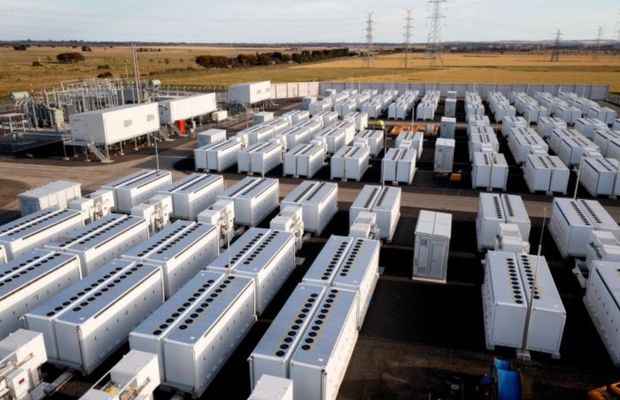Battery Energy Storage are at the forefront of transforming power systems and enhancing energy security worldwide. Their rapid development and deployment are catalyzing shifts in how energy is produced, distributed, and utilized, offering a more flexible, efficient, and resilient energy infrastructure. Here’s how battery energy storage is revolutionizing power systems and bolstering energy security:

1. Enabling Greater Integration of Renewable Energy
Battery energy storage is instrumental in overcoming one of the main challenges of renewable energy sources: their intermittency. By storing excess energy generated during peak solar or wind conditions, battery energy storage allows for the use of renewables even when the sun isn’t shining or the wind isn’t blowing. This capability significantly enhances the viability and reliability of renewable energy, reducing dependence on fossil fuels and contributing to a cleaner, more sustainable energy mix.
2. Improving Grid Stability and Reliability
The ability of battery energy storage to provide ancillary services such as frequency regulation and voltage support is vital for maintaining grid stability. They can respond within milliseconds to fluctuations in power demand or supply, ensuring a stable and continuous energy supply. This rapid response capability is crucial for preventing power outages and ensuring the smooth operation of the grid, thereby enhancing energy security.
3. Facilitating Distributed Energy Systems
Battery energy storage supports the development of distributed energy resources (DERs) by allowing for the local storage of energy, which can be used or distributed within the community as needed. This decentralization of power generation and storage reduces the strain on transmission and distribution networks and lowers the risk of large-scale grid failures. By promoting energy self-sufficiency at the local level, battery energy storage enhances energy security and resilience.
4. Reducing Dependence on Imported Fuels
For countries reliant on imported fossil fuels, battery energy storage combined with renewable energy sources can significantly reduce this dependence. By maximizing the use of domestically generated renewable energy, countries can improve their energy independence and security, reducing their vulnerability to international market fluctuations and geopolitical tensions.
5. Supporting the Electrification of Transportation
The integration of battery energy storage with electric vehicle (EV) charging infrastructure is critical for the widespread adoption of EVs. battery energy storage can mitigate the impact of EV charging on the grid, ensuring that the increasing demand for electricity is managed efficiently and sustainably. Furthermore, vehicle-to-grid (V2G) technologies can transform EVs into mobile storage units that can supply electricity back to the grid, further enhancing energy security and flexibility.
6. Promoting Economic Stability and Growth
Investing in battery energy storage can stimulate economic growth by creating jobs in manufacturing, installation, operation, and maintenance of storage systems. It also contributes to economic stability by reducing energy costs, improving the competitiveness of renewable energy, and mitigating the economic risks associated with fossil fuel price volatility and supply disruptions.
7. Enhancing Resilience to Climate Change
As climate change increases the frequency and severity of extreme weather events, the resilience of power systems becomes increasingly important. battery energy storage can provide essential backup power during outages, supporting critical infrastructure and ensuring that essential services remain operational. This resilience is a key aspect of energy security in the face of climate change.
Conclusion
Battery Energy Storage Systems are transforming power systems by enhancing the integration, stability, and efficiency of renewable energy sources. By doing so, they play a crucial role in enhancing global energy security, reducing reliance on fossil fuels, and supporting the transition to a more sustainable and resilient energy future. The strategic deployment of battery energy storage, alongside advancements in technology and supportive policies, will continue to be pivotal in shaping the future of global energy systems.
